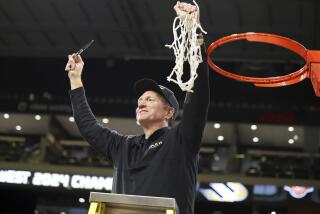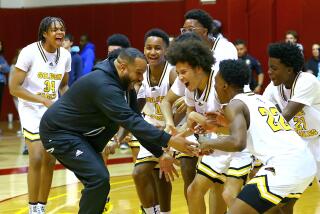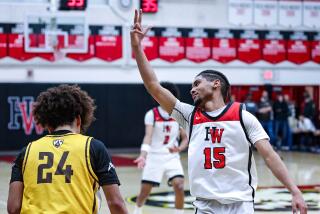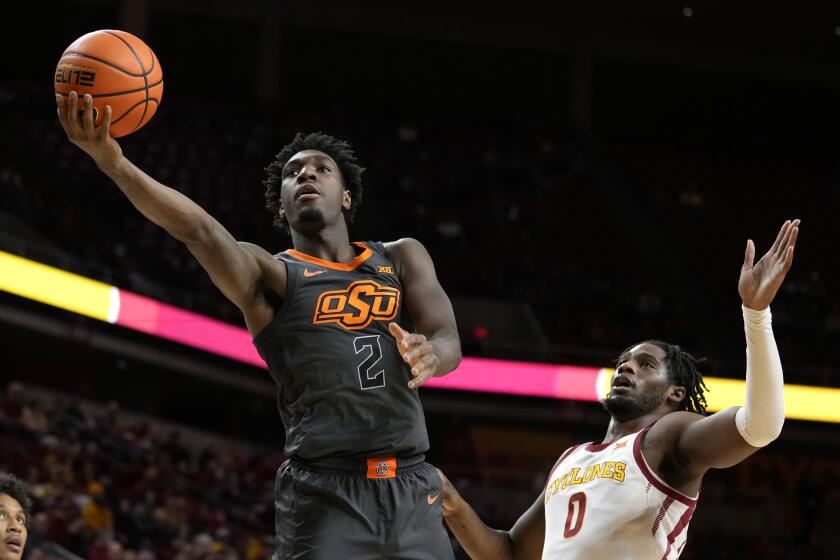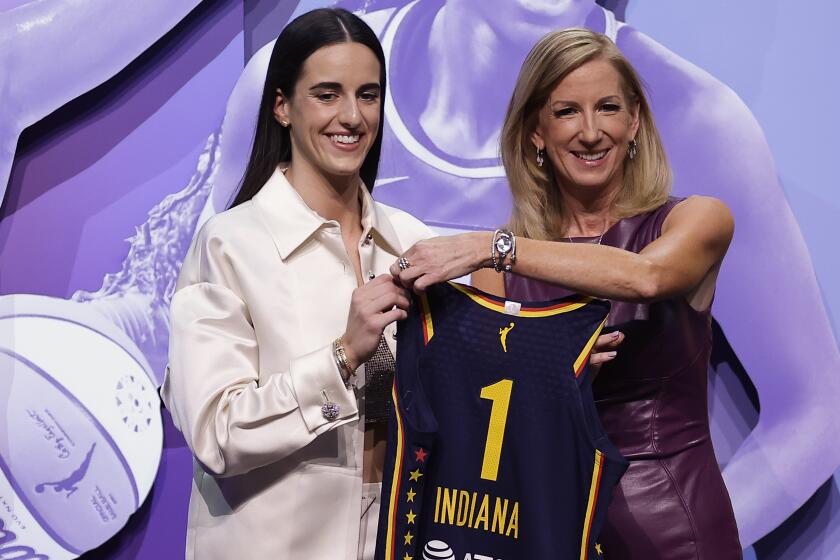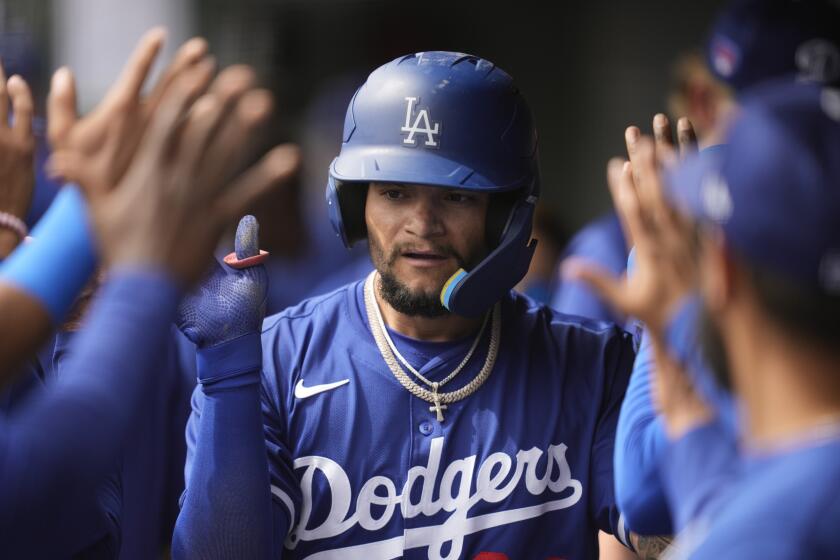Father-son, coach-player combo has been around college hoops for awhile
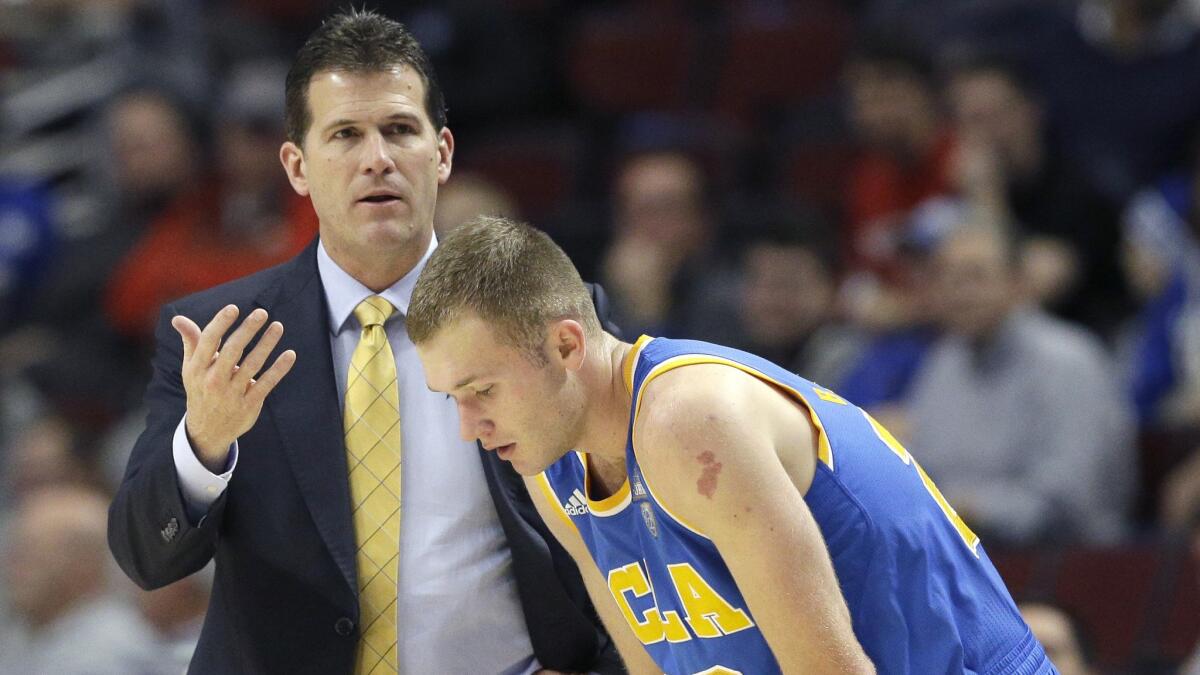
It was only a week ago that Austin Rivers became the first son to play for his father, Clippers Coach Doc Rivers, in NBA history.
Before the younger Rivers was traded to the Clippers, though, he made sure to call his mother, Kristen, to talk about the possibility of playing for dad.
“She was a wreck the first night,” Austin Rivers said.
This situation is new for the NBA. But in college basketball, there have been numerous examples of fathers coaching sons — and the dynamic can have its difficulties.
Reggie Theus, former NBA player and Sacramento Kings coach and now the coach at Cal State Northridge, decided to avoid the situation altogether. His son, Reggie Theus Jr., plays for South Carolina. Theus coached his son in AAU ball and called it “one of the most awesome things in the world.”
But the elder Theus recognized the difficulties it could pose in college. When a father coaches a son, there are the playing-time disputes to navigate and strained relationships to avoid. Players are always going to trash the coach at one time or another, Reggie Theus said, and his son would have to hear everything.
“I’ve seen and heard at times it’s put a strain on the father-son relationship,” Theus said.
So when Theus took the Northridge coaching job, his son decided to stick with his commitment to South Carolina.
But for those families that have played together, some pieces of wisdom seem to help smooth out the situation.
For the player: Give teammates space to vent, keep locker-room talk in the locker room, and stay composed when the coach gets mad.
For the coach: Separate coaching time from father time, and let the players know their performance controls how much they play.
Miami Coach Jim Larrañaga has been a head coach for 29 years. Earlier in his career, Larrañaga coached his two sons, Jay, who averaged double-digit scoring at Bowling Green, and Jon, who helped George Mason reach the NCAA tournament.
“My job is to win,” Coach Larrañaga said of his philosophy. “I’m going to play the guys that can help me win. If that’s you, great.”
Creighton Coach Greg McDermott coached his son, Doug, for four seasons.
“You’d want him to be one of the best players on your team,” Greg McDermott said. “Or you’d want him to be someone that doesn’t play.”
Anywhere in between invites grumbling about playing time.
It was easy for the McDermotts. Doug, a rookie forward with the Chicago Bulls, was a three-time All-American for his dad and won the Naismith Award, given to the player of the year, last season.
At UCLA, where Steve Alford coaches two sons, Bryce and Kory, playing time isn’t a contentious issue within the team.
Bryce, a sophomore guard, led the Bruins in scoring (15.7 points) and playing time (35 minutes) before their game Thursday night against Oregon State. Kory, a non-scholarship redshirt junior guard, had not played in 12 of the Bruins’ first 18 games this season.
But when UCLA has gone cold, fans have wondered whether Bryce Alford should be seeing as much time or taking as many shots.
“There’s a lot of noise that wants you to change who you are,” Steve Alford said. “And I’ve never been a part of any coaching situation where it’s been father-coach to where it’s been favoritism. If anything, it’s the other way.
“If I’m a fifth-grade coach, yeah, probably my kid’s playing a lot,” Alford said. But, he added, “This is college basketball. This is big-time business.”
On a personal level, situations when a parent coaches a son can go in either direction. Ed O’Connor, a sports psychologist at the Mary Free Bed Rehabilitation Hospital in Grand Rapids, Mich., said it’s important for each to define their roles and to set aside time when the pair can interact outside of the sport.
And, he said, a coach should set clear standards for all of his players.
“It’s very hard to be objective,” O’Connor said. “Everyone thinks their kid deserves more. The best thing coaches can do is have very objective standards for what it takes to earn playing time.”
There are few better examples than the McDermotts, who grew their relationship while achieving career highlights together. Doug McDermott finished fifth on the all-time Division-I scoring list. Greg McDermott won his first NCAA tournament game with his son.
But even for them, there were incidents.
One in particular, Greg McDermott and his wife, Theresa, remember differently.
During Doug’s sophomore year, Creighton was getting pushed around by Wichita State. Greg yelled at Doug, and when Doug didn’t respond, Greg got in his face.
“For me it was an example of the coach trying to get his best player to raise the level of play to maybe change the way our team’s playing,” Greg McDermott said.
“From her perspective,” Greg McDermott said with a laugh, referring to Theresa, “it was, ‘That’s my son out there. That’s my baby. Don’t do that to him.’ ”
More to Read
Get our high school sports newsletter
Prep Rally is devoted to the SoCal high school sports experience, bringing you scores, stories and a behind-the-scenes look at what makes prep sports so popular.
You may occasionally receive promotional content from the Los Angeles Times.
